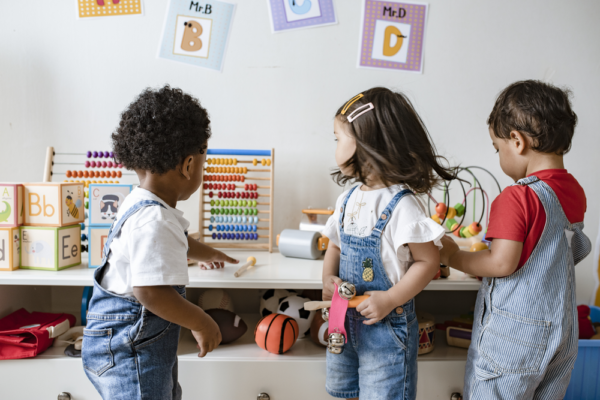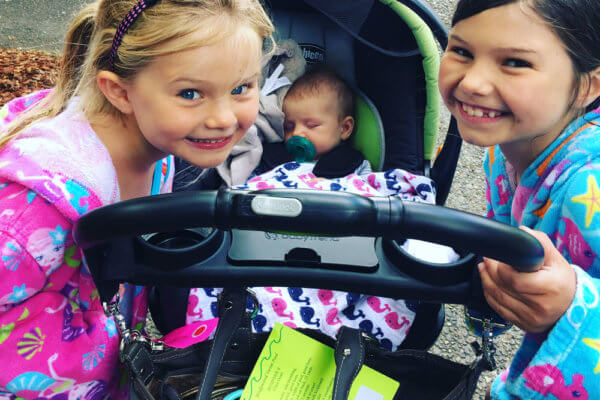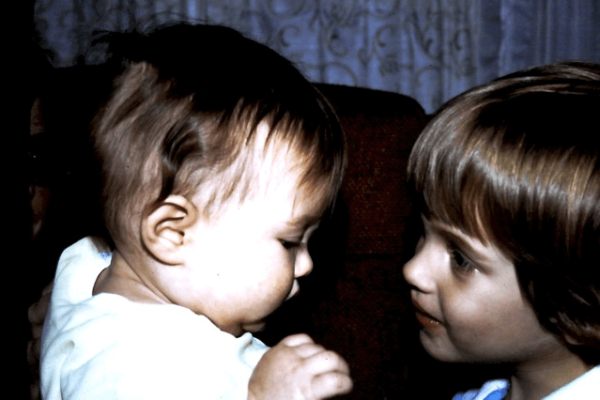How do I teach kids to share?
It is completely unrealistic, developmentally, to expect young children to share. What you CAN teach them, explicitly is what it means to share (usually taking turns) and the skills they need to be practicing mutually respectful sharing.
You will likely need to teach this over and over until they understand the concept of sharing. You can encourage it, but don’t expect it at all times. Sometimes we don’t feel like sharing either. Often food is a nice way to teach sharing because it is a more concrete example of breaking something up and consuming it individually. Toys and other tangible things are trickier.
In fact, if I asked you for your cell phone or purse or really anything that’s yours and you enjoy – would you give it to me? So why do we expect our young children to act any different? Plus, their concept of time is different than ours, so giving something over feels like it is lost forever.

Every child has their own personality and for some, they may just give up easily and let another more dominant child take their toys away without a fight. This doesn’t mean the child has learned how to share. They may need those communication skills just as much as the loud child. In this case, you can teach and model being assertive, especially to counteract some sibling or friend dynamics that lead to patterns of passive and aggressive relationships.
“When she refuses to share, rest assured that this doesn’t mean she will be forever selfish. It will help to understand that she is acting age-appropriately.”
Jane Nelsen, Positive Discipline for Preschoolers
Infants to 3 years old
Modeling is your best tool here. When playing with a child you can hold out your hand and ask. “Can I take a turn?”
Or you can be the voice for others when children are playing together. When one child takes a toy, you GENTLY guide their hand to give it back to the other to try again, “Can Amy have a turn?”
Preschoolers, 3-5 years old
Preschoolers are finally ready developmentally, to learn some of the skills needed to share. With your support they can learn to…
Negotiate & Compromise
Teach how to negotiate, “You can play with the car when she has pushed it around the track three times.”
Or teach how to compromise, “Can we play together?” We suggest 5 minutes or less otherwise it’s too long for this age group to wait.
Discuss Problems with Others
You can teach them how to ask, “Can I take a turn?” or “When can I have a turn?” If hosting a playdate, talk with your little one before and role play what might happen when the friend comes over and (naturally) wants to play with their toys. Are there any special toys they want to put away before they come over? What is expected when a guest is over?
Wait for Their Turn
You can prompt them with, “What are you going to do while you wait for your turn? Do you want some ideas?”





Comments